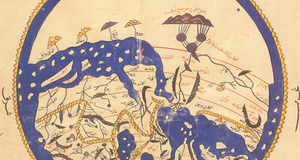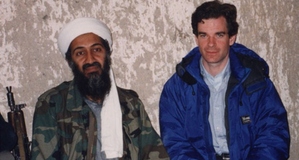Featured Article:Is Western Political Science Applicable to the Islamic World? On the Universality of Particularism in the Middle East
By
2017, Vol. 9 No. 02 | pg. 1/1 Given pervasive representations of its geostrategic and global economic significance, the Middle East constitutes an important area of political and academic study far beyond its geographical boundaries. A key debate underlying such research is whether the region represents a “unique case, quite different from the rest of the world and incomprehensible to outsiders,” or if it is rather open to analysis by an “intellectual system of general application” (Halliday, 1996: 2). By critically evaluating Fred Halliday’s view that the Middle East’s “uniqueness” has been greatly overrated by analysts and scholars, put forth in his Islam and the Myth of Confrontation: Religion and Politics in the Middle East (1996), this essay argues that his combination of analytic universalism and historical particularism provides a trenchant critique of both essentialist and universalist analytical frameworks. However, his rejection of post-structuralist critical theory is misguided and ultimately overlooks the complementarities between that approach and his. In contrast to what Halliday presents as a dichotomy between his own analytical perspective and the purportedly immobilizing relativism of post-structural frameworks, a proper understanding of Foucauldian insights into the relationship between power and the production of knowledge can, in fact, strengthen Halliday’s approach by inviting critical and normative self-reflection. This synthesis allows for the confirmation of both the historical particularity of the Middle East and the applicability of social science thereto, while retaining an ontologically reflexive self-awareness required to avoid the inadvertent reification of historical relationships of domination between the West and the “Orient.” Essentially conducting an enquiry into the epistemology and ontology of social science, Halliday argues that the Middle East can be analysed and understood with reference to “general analytic and theoretical categories, independent of specific data and situations” (1996: 195-196). Rejecting both essentialist and universalist lines of argumentation, Halliday propounds a combination of “historical particularism” and “analytic universalism” (Ibid. 15). He challenges universalist perspectives such as modernization theory, according to which the Middle East is simply another part of the underdeveloped world yet to reach a teleologically conceived economic and political “modernity” (Rostow, 1990), as well as Marxist world-systems theories which situate the region among the relatively homogeneous “peripheral” economies of a global capitalist world system (Wallerstein, 1976). His contention with such universalist theories is that they overlook the particularities of the Middle Eastern colonial experience, ethnic and confessional influences on societal conflict, as well as the distinctive geostrategic role of the Middle East in the Cold War and beyond (Halliday, 1996: 36-40).These shortcomings result in an inability to explain variable outcomes both between countries within the region as well as between the region as a whole and the rest of the developing world; thus Halliday’s commitment to a historical particularism is better able to understand the specificity of sociopolitical outcomes in the Middle East. This espousal of historical particularism does not, however, result in an assertion of Middle Eastern uniqueness. Rather, Halliday mounts a particularly potent offensive against Orientalist theses on the Middle East. He shows how such analytical perspectives claim to have uncovered an “essential” factor, unique to the region, decisively determining sociopolitical outcomes therein. This essential factor is often identified as the Islamic religion (e.g. Lewis, 1990). Here Halliday shifts from his stress on historical particularism to a focus on analytic universalism. Rejecting the deployment of Islam as an explanatory category, Halliday shows how it is in no way unique to the Middle East, and even there the Orientalist assumption of continuity in Islamic beliefs and culture over centuries is at best highly questionable (Halliday, 1996: 205-209; Eickelman & Piscatori, 1996: 34). Arguments on the immutability of Islamic culture are undermined by constant revisionism regarding the exact constitution of its political effects. Indeed, such arguments on the immutability of Islamic culture are undermined by constant revisionism regarding the exact constitution of its political effects, in light of upheavals and transformations such as the 1979 Iranian revolution (Sadowski, 1993: 16). Furthermore, empirical investigations have uncovered that Middle Eastern societies and institutions have become increasingly secularised despite the prevalence of “spray-on Islam,” the rhetorical “painting” of those secular institutions as somehow inherently “Islamic” (Zubaida, 2011: 4). It becomes clear that Halliday’s combination of historical particularism and analytic universalism has undermined both essentialist and universalist theoretical frameworks, and is not only supported by the broader empirical and theoretical literature on the Middle East, but also better able to explain the region’s particularity with reference to generally applicable explanatory categories such as material interests, strategic calculations and power relations (Halliday, 1996: 197-198). Thus far, however, Halliday has mainly sought to challenge the epistemological assumptions of the aforementioned essentialist and universalist frameworks, as he does not seek to forsake his ontology by which “there is such a thing as reality, and … it is the task of concepts and theories to analyse it” (Ibid.: 196, original emphasis). This ontological commitment is challenged by post-structural accounts of the production of knowledge of the Middle East, addressed by Halliday in his critique of Edward Said’s Orientalism (2003). Rejecting Orientalism on both methodological and ontological grounds, Halliday argues that Said fails in “the central intellectual task, namely the analysis of the societies in question” (1996: 201). This criticism is somewhat curious, given Said’s explicitly stated task of critiquing discourse regarding the Orient, rather than engaging in an empirical sociopolitical analysis thereof (Said, 2003: 339). This contention is seemingly irreconcilable, being a question of analytical focus rather than the suitability of divergent methods to an equivalent task. Moreover, Halliday presents a limited understanding of the post-structuralist conception of “discourse” as being solely constituted by “what people say and write” (Halliday, 1996: 201). This misinterprets Said’s properly Foucauldian conception of discourse as a product of power relations, “with supporting institutions, vocabulary, scholarship, imagery, doctrines, even colonial bureaucracies and colonial styles,” in other words, a form of knowledge produced by and interspersed among diffuse networks of institutions, social hegemonies, legal frameworks etc. (Said, 2003: 2; Foucault, 1998: 92-93). Notwithstanding the importance of such methodological and definitional questions, more interesting is Halliday’s engagement with the post-structuralist ontological challenge. His unease arises from the post-structuralist rejection of scientific objectivity, which posits that the “effects of truth are produced within discourses which in themselves are neither true nor false” (Foucault, 1980: 118), but rather the product of particular relations of power and domination, in this case between the West and the Orient (Lockman, 2010: 187-188). Halliday is concerned that such a perspective will espouse any alternative to forms of knowledge produced within relations of domination, including radical nativist ideologies (1996: 4-5). Although such extreme “anti-Orientalism” is found in the “indigenization” project favouring all forms of native knowledge untainted by Western influence (Baber, 2002), this approach is in fact incompatible with the aforementioned post-structuralist framework, which precludes an assessment of relative validity between knowledges influenced and uninfluenced by power relations, due to the impossibility of the latter. Furthermore, Said explicitly avoids postulating the inherent invalidity of Orientalist discourse, instead seeking to acquire a critical reflexivity in the future production of knowledge on the Orient (1985: 103; Prakash, 1990: 399). Rather than inevitably resulting in an absolute relativist amorality, post-structuralist critique aims to uncover “what type of assumptions, of familiar notions, of established, unexamined ways of thinking the accepted practices are based … To do criticism is to make harder those acts which are now too easy” (Foucault, 2002: 456). Indeed, when seeking to illuminate the material interests and power relations at play in the rhetorical deployment of supposedly ahistorical concepts such as “political Islam,” Halliday’s critical examination closely resembles a Foucauldian genealogical analysis (Halliday, 1996: 6-7; Foucault, 1980: 117). While Halliday’s combination of analytic universalism and historical particularism was therefore shown to convincingly challenge claims of Middle Eastern uniqueness, his commitment to an objectivist ontology and partial misreading of Said obscure the extent to which both approaches similarly challenge accepted assumptions and essentialisms. However, the post-structuralist framework need not represent a mutually exclusive alternative to Halliday’s approach, but can rather be usefully deployed as a tool of critical and normative self-reflection. Given Halliday’s renown within academia regarding the Middle East (Zubaida, 2010), an awareness of the role of the author in the production of social scientific knowledge thereon is particularly pertinent (Foucault, 2000: 210). Although incorporating a post-structuralist ontological reflexivity into Halliday’s approach requires the abandonment of positivist objectivism, it does not undermine his main proposition that the Middle East is open to analysis through general social scientific categories. Rather, it avoids inadvertently reifying existing relations of domination by acknowledging the ways in which all social scientific categorizations, particularly those created by Western scholars and subsequently applied to the Middle East, are inescapably political (Fabian, 1983: 143). If indeed “[t]he impossibility of penetrating the divine scheme of the universe cannot … dissuade us from planning human schemes, even though it is clear that they are provisional” (Borges, 1999: 231), the producers of such schemes should at least be aware of their role in shaping and reshaping the power relations within which they are inherently situated. ReferencesBaber, Z. (2002) ‘Orientalism, Occidentalism, Nativism: The Culturalist Quest for Indigenous Science and Knowledge,’ The European Legacy, Vol. 7, No. 6, pp. 747-758. Borges, J. (1999) ‘John Wilkins’ Analytical Language,’ in E. Weinberger (ed.) Jorge Luis Borges: Selected Non-Fictions (Harmondsworth: Viking), pp. 229-232. Eickelman, D. and J. Piscatori (1996) Muslim Politics (Princeton, NJ: Princeton University Press). Fabian, J. (1983) Time and the Other: How Anthropology Makes Its Object (New York, NY: Columbia University Press). Foucault, M. (1980) ‘Truth and Power,’ in C. Gordon (ed.) Power/Knowledge: Selected Interviews and Other Writings 1972-1977 (Brighton: The Harvester Press Ltd.), pp. 109-133. –––– (1998) The History of Sexuality, Vol. I: The Will to Knowledge, reprint edn. (London: Penguin). –––– (2000) ‘What Is an Author?’ in J. Faubion (ed.) Aesthetic, Method, and Epistemology: Essential Works of Foucault 1954-1985, Vol. 2 (London: Penguin), pp. 205-222. –––– (2002) ‘So Is It Important to Think?’ in J. Faubion (ed.) Power: Essential Works of Foucault 1954-1984, Vol. 3 (London: Penguin), pp. 454-458. Halliday, F. (1996) Islam and the Myth of Confrontation: Religion and Politics in the Middle East (New York, NY: IB Tauris). Lewis, B. (1990) ‘The Roots of Muslim Rage,’ The Atlantic, Vol. 266, No. 3, pp. 47-60. Lockman, Z. (2010) Contending Visions of the Middle East: The History and Politics of Orientalism (Cambridge: Cambridge University Press). Prakash, G. (1990) ‘Writing Post-Orientalist Histories of the Third World: Perspectives from Indian Historiography,’ Comparative Studies in Society and History, Vol. 32, No. 2, pp. 383-408. Rostow, W. (1990) The Stages of Economic Growth: A Non-Communist Manifesto, 3rd edn. (Cambridge: Cambridge University Press). Said, E (2003) Orientalism, reprint edn. (London: Penguin). –––– (1985) ‘Orientalism Reconsidered,’ Cultural Critique, Vol. 1, No. 1, pp. 89-107. Sadowski, Y. (1993) ‘The New Orientalism and the Democracy Debate,’ Middle East Report, No. 183, pp. 14-21+40. Wallerstein, I. (1979) ‘A World-System Perspective on the Social Sciences,’ The British Journal of Sociology, Vol. 27, No. 3, pp. 343-352. Zubaida, S. (2010) ‘Fred Halliday Obituary,’ The Guardian, 26th April. Available at: [Accessed 19th November, 2016]. –––– (2011) Beyond Islam: A New Understanding of the Middle East (London: I.B. Tauris). Suggested Reading from Inquiries Journal
Inquiries Journal provides undergraduate and graduate students around the world a platform for the wide dissemination of academic work over a range of core disciplines. Representing the work of students from hundreds of institutions around the globe, Inquiries Journal's large database of academic articles is completely free. Learn more | Blog | Submit Latest in Political Science |


















